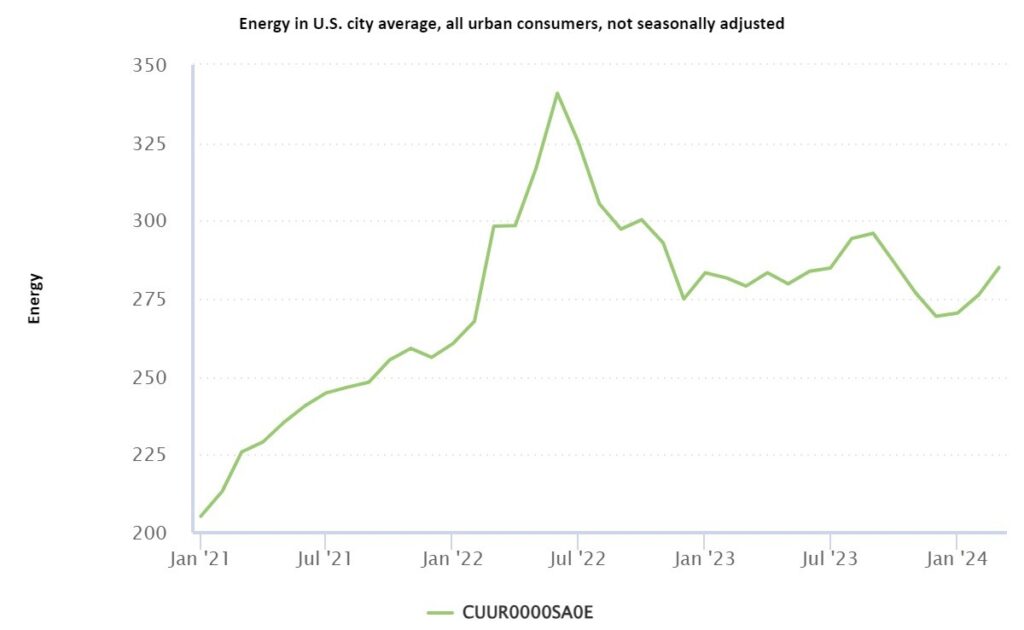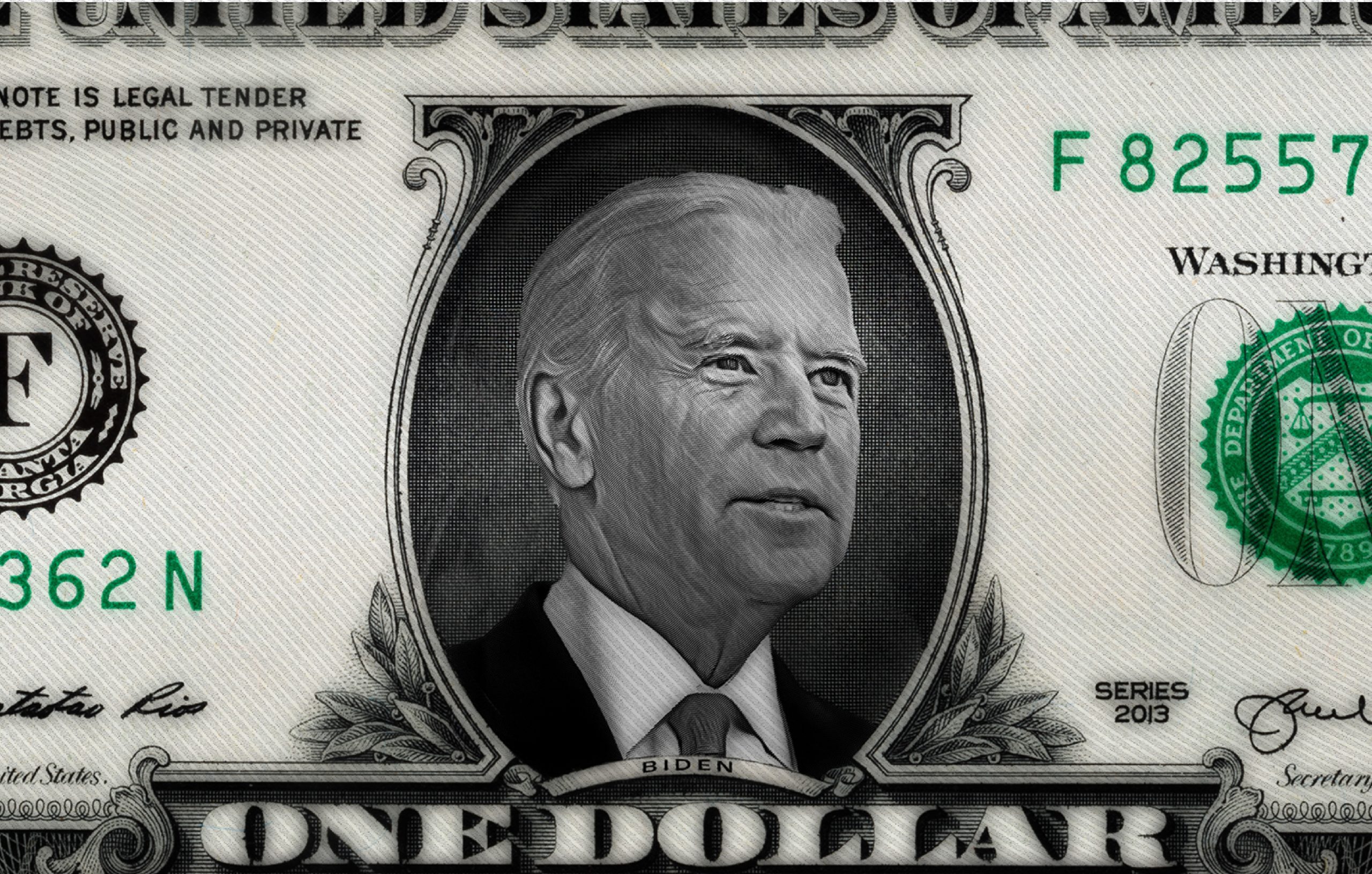Between his inflationary fiscal policies and his regulatory war on fossil fuels, Joe Biden’s energy policies have hit Americans hard – from the pump to the workplace to the home. It doesn’t matter if we’re talking summer or winter, Bidenomics makes it more expensive to keep yourself cool or warm or anything in between.
Energy Costs More
The numbers tell a grim tale. According to the U.S. Bureau of Labor Statistics, since Joe Biden entered office, energy costs are up 39% (see graph), home heating oil is up 44%, gasoline is up 48%, electricity is up 29%, and natural gas is up 27%. And unlike other goods, energy is a necessity for most people. Economists would say it is “inelastic,” which means that when energy prices go up, there won’t be a drop-off in demand – people will continue to buy it.
The wealthy pay a much lower share of their income on energy than poor people. That’s why high energy prices are so insidious and really hurt the poor and those on fixed incomes.

Heating and Cooling
Let’s start with keeping your house warm or cool.
Winter heating costs have increased substantially under President Biden. No matter how you heat your home – natural gas, electricity, propane, or home heating oil – you are paying anywhere from 16% to 64% more under Bidenomics.
The President loves to express solidarity with the average American struggling with inflation and tell them how hard he’s working to lower prices. Yet at the same time his administration doubles down on policies that will increase heating and cooling costs on Americans. Final regulations on air conditioners, gas furnaces, and a proposed rule targeting water heaters will force consumers to pay more for appliances that don’t perform as well and cost more. Washington should not be in the business of telling consumers what fuels their appliances use or what features they have.
Gas Prices
Perhaps nothing has demonstrated the folly of Bidenomics like the price of gasoline. Gasoline isn’t a luxury item for most Americans; it is a necessity. It gets them to and from work and school. It powers the equipment that enables them to earn their paycheck. And it powers the vehicles that deliver the goods Americans want. It has a ripple effect throughout the entire economy.
According to information available from AAA, gas prices have increased significantly under President Biden. On January 21, 2021, the average price of a regular gallon of gas was $2.38. By June 14, 2022, the average price of regular unleaded gas was $5 per gallon. While that has since slid back to $3.62 per gallon as of April 10, 2024, these prices are substantially above the levels before President Biden took office.
Instead of working to bring oil and gas prices down, the President’s energy policies have one aim: to promote a climate agenda while tying our energy production to estimates of greenhouse gas emissions.
The Biden Administration has ratcheted up regulations that impose additional costs on every part of the oil and gas supply chain, imposed a new tax on methane emissions from certain natural gas facilities, slow rolled new oil and gas leasing on federal lands including in the Gulf of Mexico, suspended leases in the Arctic National Wildlife Refuge and New Mexico’s prolific Permian Basin, reversed Trump administration reforms to oil and gas rules, signed legislation reinstating a 28-year-old tax on crude oil imports and domestic production, delayed or revoked natural gas pipeline permits, and more.
Biden LNG Decision Hurts America
Maybe no policy decision is as illustrative of the bankruptcy of Bidenomics as the President’s decision to halt approvals of liquefied natural gas (LNG) exports. The President claims he just wants to “take a hard look at the impacts of LNG exports on energy costs, America’s energy security, and our environment.” But the President isn’t fooling anyone.
This decision was justly pummeled with a left-right combination. The Washington Post editorial board called it “an election-year sop to climate activists that will do much more to unsettle vital U.S. alliances than to save the planet.” Meanwhile the Wall Street Journal said the decision was a “raw political payoff to the climate left” and that the “export permit ban looks worse the more you examine it.”
Exporting LNG is good for America. It helps keep natural gas prices low by stimulating domestic exploration, it improves our balance of trade, supports thousands of good-paying jobs, and provides lease payments to landowners, many of whom are middle class Americans . It is also critical to our national security.
Halting new American LNG exports would drive our allies and partners across the world straight into the arms of other countries, most of whom are unfriendly. Instead of money flowing to Texas, West Virginia, Ohio, Pennsylvania, and North Dakota, it would flow to places like Russia, Iran, Qatar, and Algeria. Indeed, in the wake of the Biden decision Qatar has announced it will expand LNG exports. Coincidence?
Bidenomics isn’t just bad for our economy, it’s also bad for our national security interests.
EV Subsidies Hurt America, Help China
National security interests are also partly why the electric vehicle (EV) provisions of the misnamed Inflation Reduction Act are so problematic. It is bad enough that the President wants to push Americans into electric vehicles (EVs) that they clearly don’t want, but the strategy also plays into China’s hands. It would reward Chinese EV makers with taxpayer subsidies, and steer us away from the fuels and technologies where America leads towards minerals and technologies controlled by China.
The White House has said domestic manufacturing for clean energy technologies will include participation by Chinese companies. “The Chinese are going to be big players. They have a big domestic market. They’re already the leaders in electric vehicles,” said White House senior adviser John Podesta.
Almost 5,000 U.S. automobile dealerships wrote the President, asking him to “hit the brakes” on an Environmental Protection Agency rule on EVs that is expected to be finalized this year. They know it spells disaster for the American car market, American car manufacturers and dealerships, and American auto workers. For example, in November of last year, Ford announced it would reduce the size of its Michigan battery plant, and a month later announced it would pause production of a battery plant in Kentucky. It’s the same across the industry – automakers are responding to consumers who don’t want what Bidenomics is selling.
